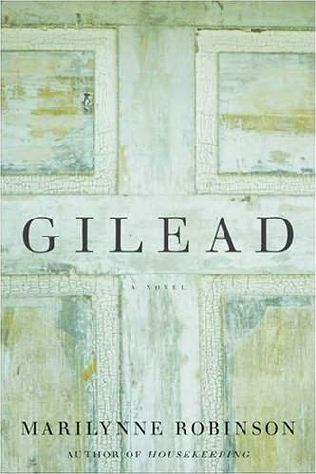Tuesday, December 29, 2009
Gilead by Marilynne Robinson
Robinson's latest shows a confidence and graceful restraint that are now rare. In the days of blogs and Twitter, when the pressure is on authors to produce quickly rather than well, Robinson has set herself apart from the crowd by taking the time -- 20 years since the publication of her last celebrated novel, Housekeeping -- to produce not just a book, but a masterpiece.
She takes on the most challenging form of novel-writing available to her: the diary. The narrator of Gilead is a 76 year-old pastor named John Ames in the small town of Gilead, Iowa in 1956. Told that he has angina pectoris and believing that he faces imminent death, Ames writes a long letter to his seven year-old son from a recent marriage to much younger woman. Gilead is that letter, but it reads more like a diary, discursive and ruminant. Ames' stated purpose in writing is to tell his son everything he would have done had he lived longer, but one understands that it is really a way for him to reflect on his life and satisfy himself that he has lived it well before dying.
The danger of the diary form is that it is static. All the elements that can support a mediocre novel -- dramatic subplots, minor characters, dramatic irony -- are absent from the limited first person point of view of a diary. We have only Ames' voice to entertain us and to give substance to our reading experience. But Robinson has such a facility with prose that Gilead is not tiresome or monotonous, but rather spare and elegant. She is able to accomplish much with this limited form.
Another challenge Robinson meets with aplomb is that of writing a clergyman as her protagonist. There is always the danger that we will assume his convictions are hers, or that she is evangelizing through fiction. Robinson does not shy away from her religious beliefs. I have not read her book of essays, The Death of Adam (1998), but I imagine there must be a good deal of overlap with Gilead, in which Ames sees no clear distinction between his religious life and the rest of it. But he is not dogmatic, never preachy. Rather, Robinson shows us a man still searching, on his death bed, for the right answers, and never quite sure he has them. It is a beautiful reminder of the fragility of all things.
You may not agree with Robinson's religious viewpoint, and you may not like the format she has chosen for this novel, but you won't be able to deny its quiet grace and heart.
Robinson, Marilynne. Gilead. New York: Farrar, Straus and Giroux, 2004. 247 pp.
Subscribe to:
Post Comments (Atom)



This comment has been removed by a blog administrator.
ReplyDelete